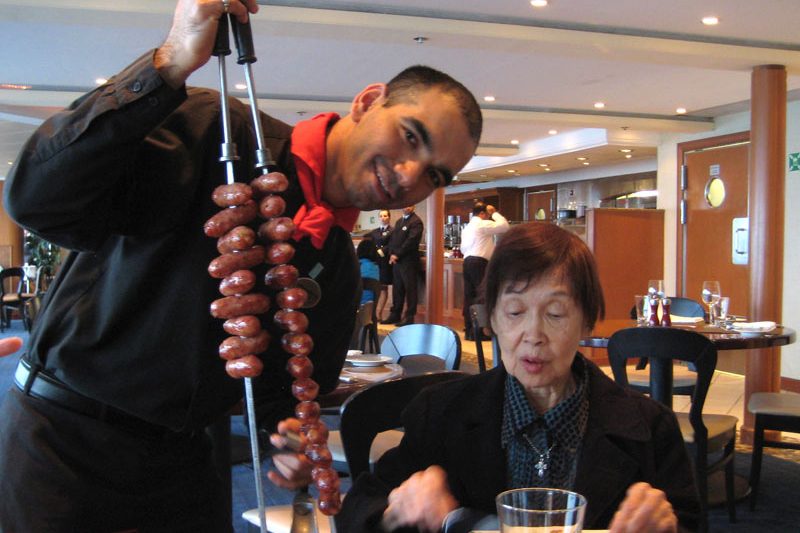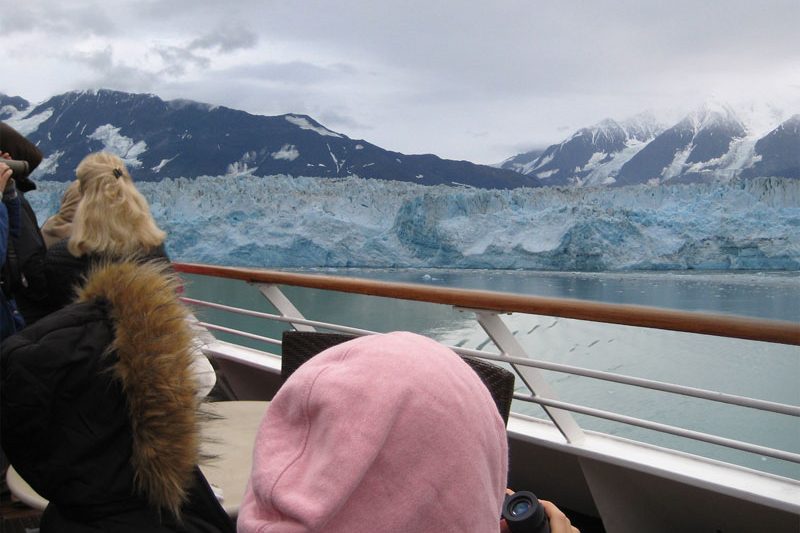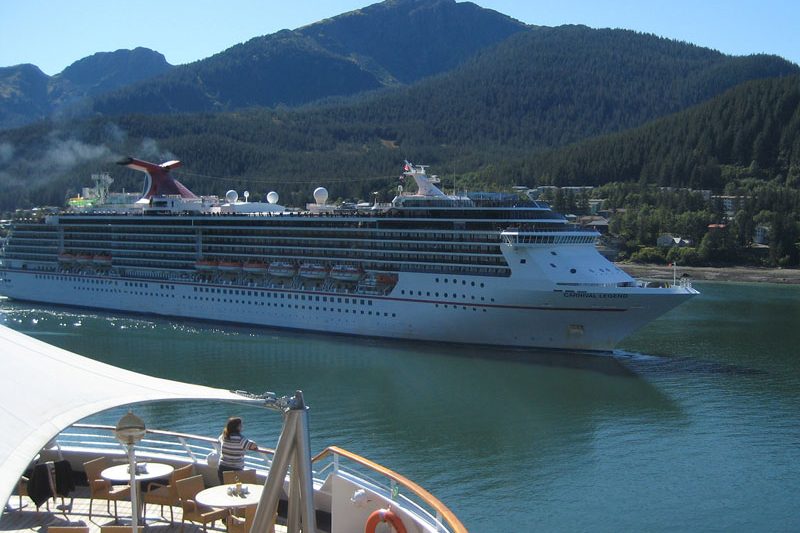An Unforgettable Adventure
Cruising with Dementia
From The Light Magazine: Cruising with Dementia, November 2015 Issue. Reprinted with the permission of Light Magazine and A. Chung.
Was I foolish to bring my 89 year old aunt with dementia on a 7-day Alaskan cruise? I questioned myself, as I lay bedridden, stricken with sea sickness, compounded by sleep deprivation, stress and worries.
Set of Symptoms, Not Disease
Dementia is a term for a set of symptoms triggered by disorders damaging the brain cells. Loss of mental capacities including memory loss, judgement and reasoning capabilities, behavioural and mood changes, and communication abilities are common signs. Alzheimer’s, vascular dementia, Parkinson’s are some of the diseases that can cause dementia.
The government estimates, between 6-15% of Canadian seniors aged 65 years and over live with some type of dementia. By 2031, the figure is expected to double, imposing a greater burden on our already taxed health care system.

Help Amidst the Storm
My aunt’s dementia was clinically diagnosed five years ago. Having taken her on regular day outings, I was ready to bring her on an extended journey. Her healthcare team gave the trip blessing, and pre-packed medications with detailed instructions to keep her healthy.
As required by policy, the cruise and air lines were advised of my aunt’s mental state. I was well aware of my aunt’s medical needs, and the physical aspects of caring.
What could go wrong? While I have caregiving experiences, I was mentally unprepared for the emotional challenges of 24/7 care. In times of exhaustion, it was tough not to take offense or rationalize with my aunt on her delusional rant.
Although her medications helped, they were customized for a controlled residential care setting, not a new, evolving environment with many distractions.
Thankfully, two family members provided relief. One delivered butler services, while the other entertained and redirected her attention when she became irritable and in a crummy mood.

Basking in the Moment
The morning sun peaked as we disembarked at Ketchikan. My aunt was having a blast on her offshore excursion, without an inkling of what transpired even hours before.
Laughing, wheeling her butler along the scenic boardwalk in her “convertible” rollator-wheelchair – forgetting she could barely walk a block the prior night.
Basking in the moment of bliss and appreciative that she is blessed with family to take her travelling – an interest she cherished – and to break away from residential care

Never Judge a Book by its Cover
A fiercely independent woman, and physically mobile, she felt imprisoned and dis-empowered in assisted living. She had attempted several failed escapes.
Once, she arranged a cab driver to take her away, but was returned to the facility when she informed him she had no cash. He was oblivious of her dementia as she still retained a degree of judgement, reasoning and communication capabilities.
In Juneau, Alaska’s jewelry hub, a persistent salesman tried selling her diamond rings. She told him she had no money. Thinking she wanted a bargain, he kept lowering the prices. I interrupted before my aunt got agitated.
Back onboard that afternoon, a lively barbeque party was in progress. Donning on her sunglasses, she joined the festivity – whistling away, inspiring in her a sense of belonging, which is rarely seen socially.
On one occasion, her fatigue did not keep her from engaged and focused in the “cruise’s live version” of Jeopardy, (her favourite TV game show).
My aunt loves her food. Her ultimate dining package afforded her to embark on a cuisine tasting rendezvous in all the restaurants.
Our next stop was Skagway, a charming frontier town. Glacier Bay and Hubbard Glacier are truly a marvel of God’s handiwork. The scenic train ride from Seward to Anchorage was breathtaking.

Expect the Unexpected
Yes, I survived my unforgettable cruise. More importantly, my aunt enjoyed her trip – that there is hope, life and enjoyment with her impairment, at her age.
I learned to expect the unexpected; to give grace and show love in her infirmity. As Proverbs 15:1 (CEV) says, “A kind answer soothes angry feelings, but harsh words stir them up.” The trip also provided a deeper understanding of dementia, and greater appreciation for dementia caregivers.
In June this year, the Government of Canada and Alzheimer Society of Canada launched Dementia Friends Canada, a campaign to engage Canadians in understanding and assisting those affected by the dementia.
Useful Links:
Dementia Friends Canada: dementiafriends.ca
Alzheimer Society of Canada: alzheimer.ca
Dementia Adventure: dementiaadventure.co.uk
Cruise Special Needs Rentals: Special Needs at Sea – specialneedsatsea.com & Care Vacations – carevacations.com
Travel Tips
Inform all travel providers and airport personnel on the individual’s disability, ask for special needs assistance. Plan travel and onboard activities during his/her most active hours.
If possible, travel on non-stop flights. Read the fine prints on the travel insurance coverage. Prevent wandering by using a portable door stop alarm or travel motion detector in the room.